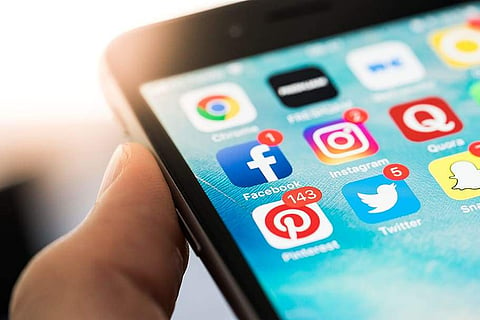

Scientists, including one of Indian origin, are working on a smartphone app that could let people know if they have come in contact with someone who has tested positive for COVID-19, while protecting their privacy. The app being developed by researchers, including Mayank Varia from Boston University in the US, uses Bluetooth-enabled cell phones to notify a person if they have come into close proximity with someone infected with SARS-CoV-2, the novel coronavirus that causes COVID-19.
To work efficiently, the app requires many people to use it, whether they have had COVID-19 or not, the researchers said. The app transmits and captures random Bluetooth signals via nearby cell phones that also have the app installed, they said. App users who have been diagnosed with COVID-19 voluntarily and anonymously report their positive results, which then causes their Bluetooth pings from the last 14 days to be uploaded to a database that's coded to ensure that the diagnosed user is uploading their own pings, the researchers explained.
From there, those signals are compared with pings of other app participants in the system, they said. The app, the team said, then alerts users of possible proximity to an infected person, and subsequently directs them to follow up with health officials. All of the uploaded information is verified by a public health agency, and all apps must be installed by users voluntarily. Varia explained that the app does not transmit any personal information, or even a unique identifier for a phone.
"To protect everyone's privacy, we are only sending random 'garbage' within each Bluetooth packet," he said. "We call these random numbers 'chirps'. People who are diagnosed with COVID-19 voluntarily post only these random chirps to a public database, which permits anyone who has come into contact with the diagnosed person to check whether any of the chirps they have match the entries in the public database," Varia said.
The technology demonstrates how automatic contact tracing can be done on a phone-to-phone basis and without a centralised opaque database that holds location information on all individuals, the researchers said. "That's important because it counters the prevailing perception that mitigating the pandemic via automatic contact tracing mandates large-scale, government-led violation of privacy of all or most of the population," they said.
